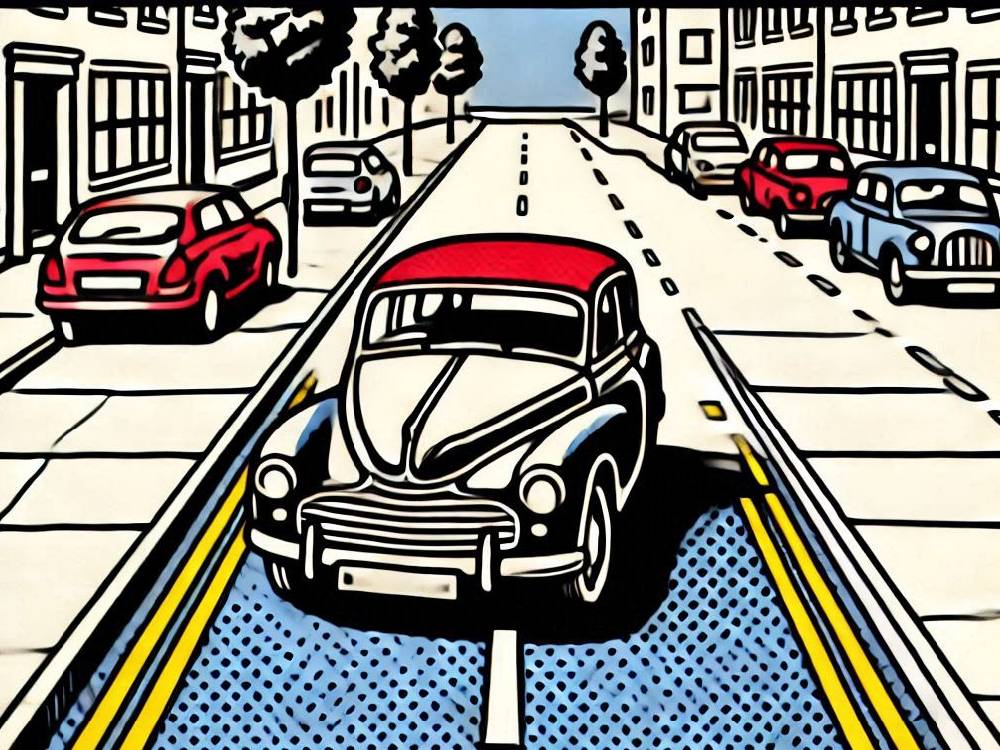UK Parking Law Shake-Up: How New Rules Could Impact Drivers

Introduction
Parking law shake-up.
Parking laws in the UK are about to face major changes.
For years, motorists and pedestrians have clashed over pavement parking.
But now, new rules could bring a solution—or spark even more debate.
Nearly half of drivers want pavement parking bans expanded beyond London and Edinburgh.
Yet, many are concerned these changes could worsen the current parking shortage.
So, what’s really going on?
Here’s a quick breakdown of what you’ll discover:
Why these parking law changes matter.What UK drivers really think.How this could affect your car insurance premiums.
Why The Parking Law Changes Are Significant
Pavement parking has been a growing problem for years.
For pedestrians, however, it creates numerous significant barriers that are hard to ignore.
Imagine trying to navigate a blocked pathway with a pram—or a wheelchair.
It’s not just inconvenient.
It’s dangerous.
Cities like London and Edinburgh have already implemented pavement parking bans.
The results?
Improved pedestrian safety and better urban mobility.
Still, rolling out similar laws nationwide won’t be simple.
The balance between drivers’ needs and pedestrian safety is a tricky one.
Public Opinion On Proposed Parking Changes
So, what exactly do drivers think about these proposed changes?
A recent survey by Venson Automotive Solutions sheds light on the debate.
Here are the key takeaways:
46% of motorists support expanding pavement parking bans nationwide.18% oppose the idea, citing limited parking spaces as their main concern.
The divide is clear.
Supporters argue that safety, especially for vulnerable pedestrians, is a top priority.
But opponents worry about the practical implications.
For many, parking in cities is already a nightmare.
Adding more restrictions could make it worse.
And that’s not all.
Some fear stricter parking laws could increase the cost of car insurance.
Read more about how to navigate car insurance in this helpful guide.
Political And Governmental Actions
This isn’t just a public debate.
It’s a political one too.
The Labour Party has pledged to revisit a 2020 Conservative consultation on pavement parking.
What does this mean?
If implemented, it could lead to nationwide reforms—finally addressing years of inaction.
Moreover, advocacy groups such as the Local Government Association (LGA) have been increasingly vocal in their support for change.
They call pavement parking “the scourge of urban spaces.”
And they’re pushing hard for change.
But will it be enough?
The Government is weighing options, including giving local councils more enforcement power.
If passed, councils could decide where and how to impose bans.
Still, the rollout may vary across regions, leaving many wondering if it’ll really work.
The Challenges Of Implementing New Parking Rules
Implementing these new laws, however, is unlikely to be straightforward and will undoubtedly come with its own set of challenges.
Here’s why.
First, enforcement is a major hurdle.
Local councils need resources to monitor compliance.
This means budgets—and manpower—will be stretched thin.
Second, the Government is proposing a 20-minute exemption for delivery vehicles.
While this might help businesses, it raises questions.
Could it create loopholes that undermine pedestrian safety?
Balancing the needs of everyone—drivers, businesses, and pedestrians—requires careful thought.
The stakes are high.
And there’s no one-size-fits-all solution.
Want to save money on your car insurance while navigating these changes?
Check out our tips for reducing costs.
Impact On Car Insurance Rates
So, how exactly could these parking law changes impact your car insurance?
This is an important and highly relevant question.
As a result of safer roads and fewer pedestrian accidents, there could be a noticeable reduction in insurance claims.
Consequently, this could translate into significant potential savings for drivers over time
But there’s a flip side.
In areas where parking becomes more restricted, drivers might face higher premiums.
Why?
Because limited parking options could increase the risk of fines, disputes, or even accidents.
Additionally, drivers may need to update their policies to reflect where they park.
For example, parking on a driveway or in a secure area often lowers premiums.
To explore how these factors affect costs, check out our guide.
Calls for A Measured Approach
So, what’s the solution?
Experts, therefore, are strongly urging a cautious approach to these proposed changes.
Simon Staton, from Venson Automotive Solutions, stresses the need for balance.
He points out that parking laws must protect pedestrians without overwhelming drivers or businesses.
This means gradual changes, not sweeping reforms.
For instance, local councils could be given more flexibility to adapt rules based on community needs.
Such an approach ensures that urban areas become safer without creating unnecessary challenges for motorists.
Moreover, involving the public in consultations can help refine these proposals.
After all, better solutions come from understanding everyone’s needs.
If you’re curious about how lifestyle choices impact car insurance, visit our guide to lifestyle factors and car insurance.
Conclusion
Parking law changes are a widely debated issue, and this is understandable due to their significant impact on communities.
Their primary goal, therefore, is to enhance road safety while simultaneously making pathways more accessible for pedestrians of all kinds.
But these changes also come with challenges, from enforcement to driver concerns about parking shortages.
The key lies in finding a balance.
Therefore, gradual and well-planned changes can address pedestrian safety effectively.
Furthermore, such changes can be implemented without unfairly penalising drivers.
And the potential benefits, including better urban living and possible car insurance savings, are worth exploring.
Want to stay informed about car insurance and related topics?
Check out these helpful resources:






